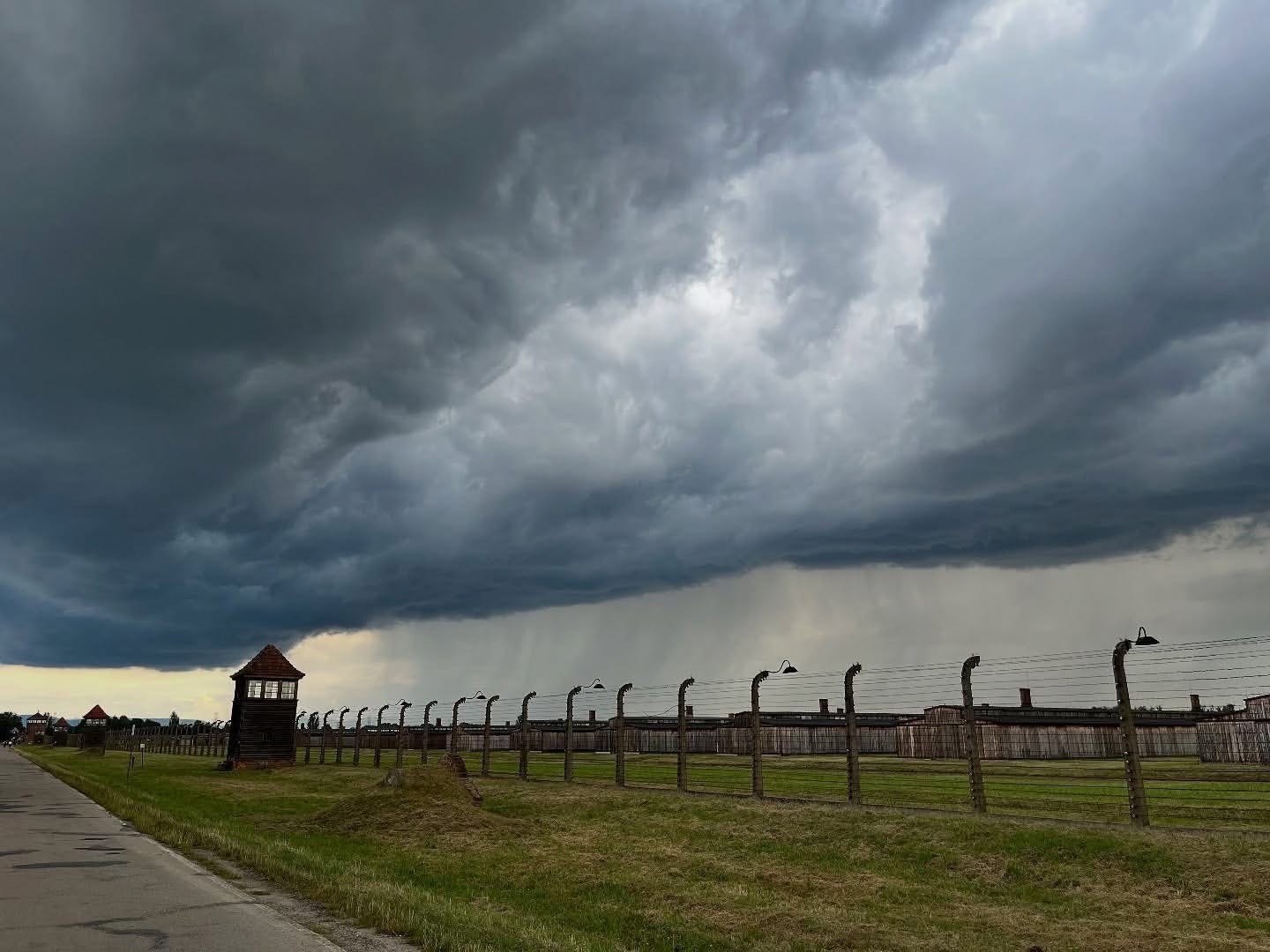Haunted
I recently found the journal entry I wrote after visiting Auschwitz in 1996, and it has taken on a new layer of horror in 2025 America.
In June 1996, I was working in Prague, and a friend and I decided to take an overnight train to Krakow and spend the weekend. As part of that trip, we went to Auschwitz; I don’t really remember any conversations we had about it before the trip, but I believe both of us felt led to go there.

I posted something here that I wrote years ago about a full-circle trip of sorts that began with going to the Jewish Cemetery in Prague and seeing the drawings of children who were imprisoned in the concentration camp Terezin near Prague during World War II. Some of those children were later transported to Auschwitz, where they were murdered; before our visit to Auschwitz, my friend and I had also visited Terezin (though separately).
I am guessing that we both felt that Auschwitz was the place we must go to finish bearing witness to the stories of those innocent people — including the children — whose stories began at Terezin, though I’m not sure we would have put those words to it back then.
Here is the way that 31-year-old me processed what remains one of the most haunting experiences I will ever have; I wrote it later in the summer, so a few weeks removed from that day.
S. and I went to Auschwitz on our last day in Krakow, and it was of course, unspeakable.
We toured Camp I, saw the film, the exhibits of shoes and hair and suitcases, the endless rows of prisoner mug shots, eyes staring out at you, empty, but it was at Birkenau, Camp II, that it all hit home.
We saw how it was all carried out, stood on the ground those trainloads of people stepped out onto … Saw photos taken by the Nazis of the “selection” process that took place right there. Saw and walked the road that the unselected majority walked down toward the gas chambers — told they were going to be allowed to shower.
And finally, you stood next to the ruins of gas chambers #3 and #4 at the end of that road. Having seen a model of the chamber/crematorium at the other camp, you could look at the rubble and see where they were led in, the room where they were told to strip and leave their clothes in a numbered slot (and told to remember the number – a horrible ploy to carry on the lie that they were coming back from their showering) and then the top of what was the chamber. It was so small; it seemed impossible that so many people could be forced into that small space with the showerheads that were never connected to any water supply.
We also went into barracks with mud/dirt floors and bunks three deep. Children’s drawings remained in one. You had to walk through overgrown fields, grass knee-deep, to get to the barracks.
This was no neatly tended antiseptic museum.
Reading this for the first time in many, many years, I thought it was as sparely written as it should be. Everything you saw was hard to take in, much less put adequate words to.
What I did not write down in that journal entry is the thought I have never forgotten that struck me that day as I stood on the ground where the trains rolled in. I knew that anyone with any sense of humanity would feel horror as they stood in that spot, but I also realized that I could not experience the full horror because *I* would not have been put on those trains and sent to those gas chambers if I had been alive back then.
I don’t plan to turn Bright Spot into a place where I discuss the difficult things happening in the world; I believe its original goal of finding bright spots in the world is more important than ever, and I will keep that up.
But this page is also about writing and words and the way they help us process life, and when I found these long-ago words in the midst of seeing my country putting human beings into cages under a tent in the roasting sun of the Everglades, and cruel jokes alluding to alligators menacing immigrants posted to the official White House social media account and those of other elected officials, it hit hard.
We can’t be silent.






Powerful memory of a haunting place. I, too, was struck by my visit there in spring of 1994. The history shared at Auschwitz was necessary, if difficult, to begin to really understand the depth of the horror that occurred there. I also found Birkenau to be the more haunting of the two. Walking the very ground so many had 50 years prior to has stayed with me all these years.